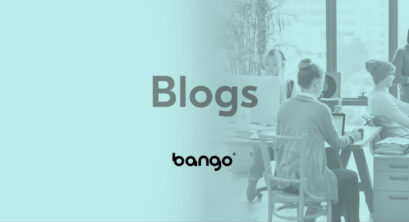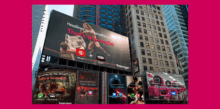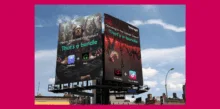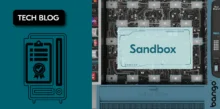Which app stores keep their developers happy?
by Sukey Miller

There are many measures of the health of an app store, but perhaps the most vital measure is how happy are the developers? A thriving developer ecosystem is a prerequisite for app store success; after all it’s the innovation and commitment of developers that provides the content on which app stores will be judged. At a more basic level, if developers can’t monetize their efforts through a given app store, they won’t stick around for too long.
Bango recently took the temperature of the global developer community, with a survey which garnered more than 80 responses. The survey questions focused on app submission and payment processes, shedding light on developer mindshare. In my debut blog post I thought I’d share some of what we learned, especially in regard to payment.
Before analyzing the results, it’s worth a reminder of which operating systems, and by extension app stores, dominate the smartphone installed base:
| Rank | OS Platform | Market share |
| 1 | Android | 41% |
| 2 | Symbian | 25% |
| 3 | iOS | 19% |
| 4 | BlackBerry | 10% |
| 5 | Bada | 2% |
| 6 | Windows Phone | 1% |
| 7 | Windows Mobile | 1% |
| Other | 2% |
Source: TomiAhonen Consulting Estimates August 15, 2012 from vendor data and other sources.
The developer narrative behind these numbers is that Android has emerged from nowhere to its current dominant position. iOS, an operating system which gave many developers their first taste of the app market tends to remain stable, powering one in five smartphones. BlackBerry accounts for one in ten smartphones, and is indelibly associated with enterprise apps. Symbian, a ‘dead’ operating system may enjoy a reasonable share of the installed base, but the numbers show that it’s in precipitous decline, accounting for only 3.3% of smartphone sales during the second quarter of 2012. A measure of Symbian’s woes: Despite accounting for one in four smartphones today, it has close to zero developer mindshare, and was completely unmentioned in our survey. Facebook is moving into content discovery and distribution but is not an operating system. Amazon’s App Store is making great strides from a standing start last year, with “hundreds of millions” of downloads according to director Aaron Rubenson – but it’s based on Android content.
Bango’s first question was: How satisfied are you with the ease and speed of the approval process?
Our respondents overwhelmingly preferred the Android-based Google Play approval process, with 73% declaring themselves very satisfied and 0% very dissatisfied. Amongst the app stores which test and approve apps before releasing them, Blackberry app world came out best, with 97% of developers either very satisfied or satisfied with the approvals process. Apple’s App Store fared worst of all, but still saw 78% of developers either very satisfied or satisfied.
Bango asked: How do you feel about the payment models available, e.g. subscription, in-app purchase, etc.
This question revealed that most developers are content with the range of options available, with more than 50% reporting that they were ‘happy’, across all app stores. Surprisingly, developers were most positive about Apple’s App Store payment models, indicating that Apple’s walled garden approach, while demanding total control of billing options, still manages to appeal to the developer community. Only the emergent Amazon App Store received lukewarm feedback, with just over half of our respondents reporting that the range of payment options for developers was “Okay”. Amazon’s App Store is still being rolled out globally, and is expected to come into its own as Amazon’s latest devices, Kindle Fire 2 and Kindle Fire HD, make inroads into the tablet space.
Addressing app store pay-out, we asked: How satisfied are you with the revenue settlement (payment) process and statements?
Here BlackBerry App World came out on top, with 37% very satisfied and 55% satisfied. Google Play received the lowest satisfaction score, with 16% either dissatisfied or very dissatisfied. However, with the vast majority of our respondents reporting satisfaction with how the app stores settle up, it’s clear that this glass is more than half full. Full disclosure and ‘humble brag’ in one: Bango provides carrier billing and settlement for BlackBerry.
We also asked: Would you accept a lower revenue share in order to sell into new markets around the world?
This question revealed a close to 50/50 split between yes and no, where Blackberry developers were slightly more likely to dilute their revenue share in exchange for wider reach (56% said yes) and Google Play developers were the least keen (42% said yes).
This question strikes at the heart of a key challenge for developers. At one end is the controlled ecosystem for Apple development, where the developer takes 70% of revenue. But Apple’s devices are expensive and exclusive, particularly across the developing world. To really unlock the business potential of the mobile web, developers will need to support a wide range of operating systems and geographies, and address various complexities. Operator billing has been established as a powerful tool, delivering high conversion rates and access to huge populations without access or willingness to use credit cards. Of course the operator will demand a share of the transaction, and what of local taxes?
At this point developers require a third party payment provider, to handle the complexity of building billing connections into global operators. Revenue share will likely be compromised, but in the vast majority of cases this will be a slightly smaller share of new incremental sales.
Cold, hard revenue.
Of course at some point developers need to simply follow the money, asking “which store will give me the highest revenue per user?” Earlier this year the app measurement company Flurry conducted research which compared top ranked apps across iOS, Amazon and Google Play, across a 45 day period.
Flurry found that for every $1 achieved from an iOS user, an Amazon app store user would secure $0.89 and a Google Play user $0.23. These results are more remarkable when considering that the Amazon store is Android content, just like in Google Play. The obvious conclusion is that Amazon, near inventors of online commerce, can create an online purchasing experience that’s an order of magnitude more effective than Google’s efforts to date – Clearly an important consideration for developers looking for the best online marketplace for their apps. However it should be noted that Amazon’s sales have been achieved with a relatively small number of high profile and stable apps, sold only in developed economies where access to credit and credit cards is common. Google Play and Android have been a driving force in opening out smartphone access to less economically developed countries, and this inevitably has an effect on those user’s ability to purchase digital content.
Using the bluntest of all measures, the total pay outs to developers from January 2011 to November 2011, estimated by Piper Jaffray and reported at CNN, saw Apple pay out $3.4 billion and Google pay out $240 million. No small difference. Blackberry seems to fit in the middle between Apple and Google. At the start of the year, RIM VP Alec Saunders told a BlackBerry conference that BlackBerry App World generates 30 downloads per user per year, and that those downloads generate 40% more revenue for developers than Google Play. 13% of BlackBerry developers have made more than $100,000 from their Blackberry Apps. The suggestion is that the smaller overall number of apps, allied to a frictionless payment experience, creates an elite band of profitable apps and developers. It’s certainly clear that this is much more than a two-way fight between Google and Apple.
Our survey and the broader data discussed here suggest it’s a long and difficult road to app monetization, and it’s likely to remain in flux for some while. We at Bango will continue to provide frictionless payment to the industry as a whole, as it aligns behind effective app stores and monetization techniques.
This post was originally published on 12th September 2012, on the Mobile Payments Today blog
![]()
Subscribe to our newsletter
Get the latest subscription bundling news and insights delivered straight to your inbox.



